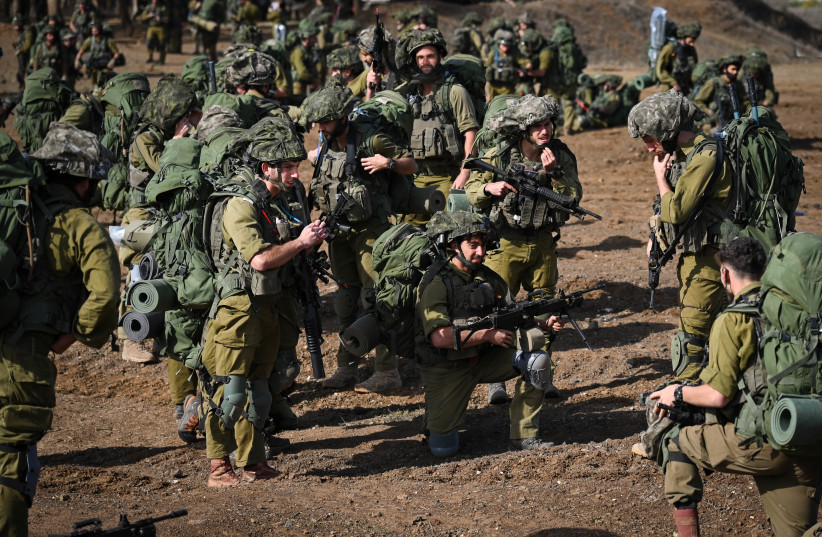Hamas’s savage attack on October 7 shattered many long-held Israeli assumptions.
One was that our enemies were deterred by our power. Another was that hunkering behind a multi-billion-dollar wall would provide adequate protection. A third was that Israel could rely on a small, hi-tech army and did not need to enlist the Haredim (ultra-Orthodox).
All those assumptions proved false. Our enemies did not deem us as powerful as we thought. It took mere minutes for an army of terrorists to crash through Israel’s border wall with Gaza. The army needs more soldiers – and swiftly.
How do we know the army needs more soldiers? Tens of thousands of reservists who were released over the past few weeks after serving more than 100 days – many of them engaged in grueling battles in Gaza – have recently been told they will be called up for yet another stint of reserve duty by the end of the year, ranging from a couple of weeks to more than a month.
The state would not be doing this – ripping husbands from their wives and fathers from their children so soon after they had just served, many of them in active combat – were it not absolutely necessary.

But it is essential, and because it is necessary, post-October 7, Israel no longer has the luxury to exempt an entire segment of its Jewish community – 13% of the population – from army service.
What was once morally wrong is now simply unsustainable in terms of Israel’s long-term survival. Why should some able-bodied young men and women be asked to risk their lives for the collective while other equally able-bodied members of that collective are not asked to do the same?
October 7 and its aftermath showed Israel needs boots on the ground – lots of them. It requires them along the border with Gaza, in Judea and Samaria, on the northern border, and – increasingly because of an uptick in infiltration attempts from Jordan – along the long border with the Hashemite Kingdom. The IDF needs people.
Set against that stark reality, a draft bill slated to be brought for approval to the cabinet on Tuesday that would essentially prolong wholesale haredi exemptions from the army is utterly tone-deaf. Instead of initiating a process that would gradually increase the number of haredi soldiers, this bill – void of any recruitment targets or penalties for draft dodgers or their yeshivot – retains the status quo.
Defense Minister Yoav Gallant and National Unity Party head Benny Gantz said they would not support this legislation. We applaud their stand and wish other members of the Likud and the coalition would take a similar principled position, even if it means bringing down the government.
The bill will pass this week... or it won't
The High Court of Justice will convene this week on the matter. A government resolution passed last June, which will expire on April 1, instructed the IDF not to conscript yeshiva students for nine months to allow the government time to draft a bill to finally resolve this issue. The bill scheduled to come to the cabinet on Tuesday is largely seen as a way to show the court that the government is working on the issue so that it can stall for even more time.
According to testimony given by IDF officers last month in the Knesset, some 66,000 haredim ages 21-26 were exempted from conscription this year because they were yeshiva students. Each year, 12,000 to 13,000 haredim get yeshiva draft exemptions.
No one expects to see 66,000 haredim – or even 12,000 – show up tomorrow to serve. But there is a need to end the blanket exemptions and begin a process whereby the haredi community internalizes that it is now expected to share in this country’s overwhelming security burden.
Twenty-five years after the court first began hearings on this matter, seven years after it struck down as discriminatory legislation granting wholesale exemptions to haredim, and the government was told to pass legislation that would change the situation, the game is over.
At a time when Israel is in the midst of its second-longest war and desperately needs manpower, measures need to be taken immediately to widen the circle of those who must serve. For this country’s future, the stalling and maneuvering must end.
